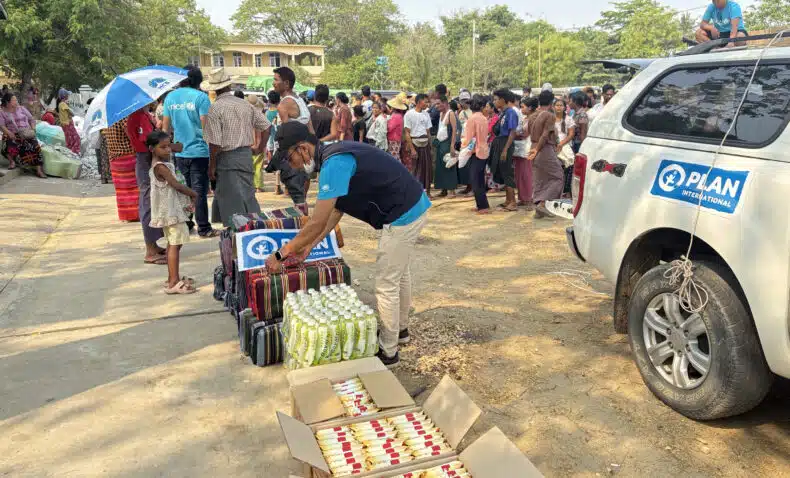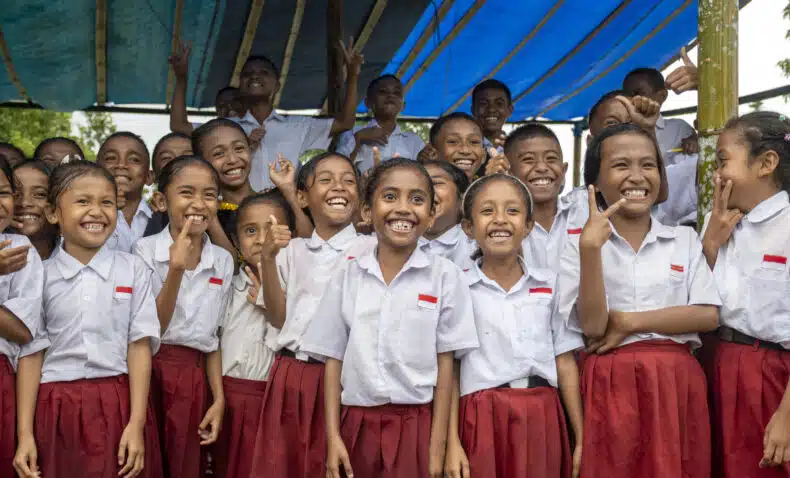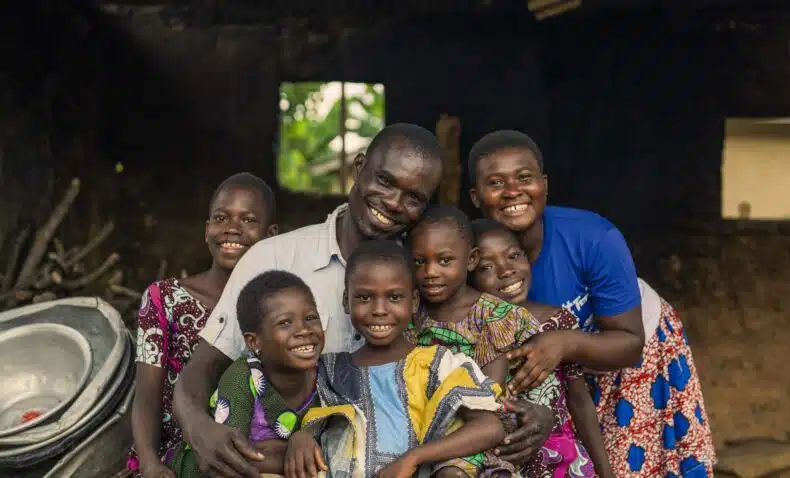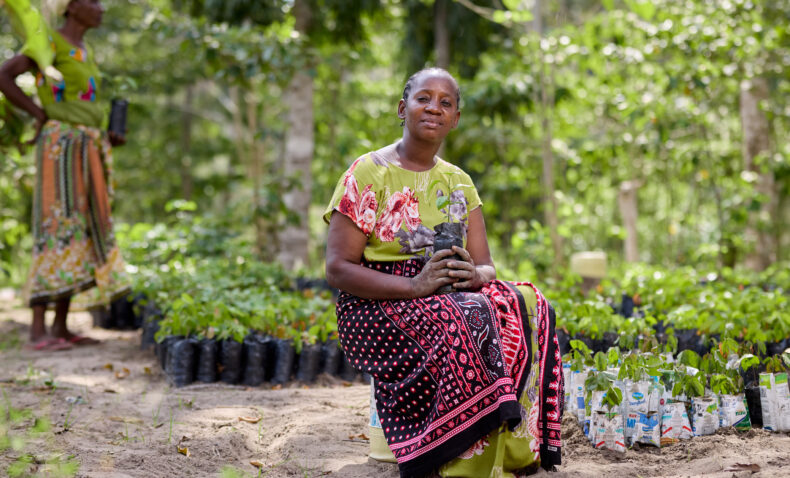In the 2023-24 financial year, Plan International Australia:
- more than 1 million people were reached in the countries where we work
- 858,191 people received food assistance as part of our humanitarian response work
- More than 23,000 hot meals were delivered to families in Gaza and 1,196 households were provided with cash assistance
- 25,659 children were reached by our Early Childhood Development and Education work
- 14,324 people participated in sessions on gender issues and women’s equal rights
- 8,509 people participated in sessions on climate related hazards and disasters
- constructed 2,100 WASH facilities by communities and health care facilities
Read more in our 2024 annual impact report.
View our previous annual impact reports.
Photo: Three generations of women – Denise, Inna and Esther. © Plan International
Where We Work
Plan International works in 83 countries towards a just world that advances children’s rights and equality for girls. Learn more about our work.
Our Australian-managed programs assist children in more than 25 countries, and child sponsorship funds support programs across the Federation. Learn more about how giving to us works.
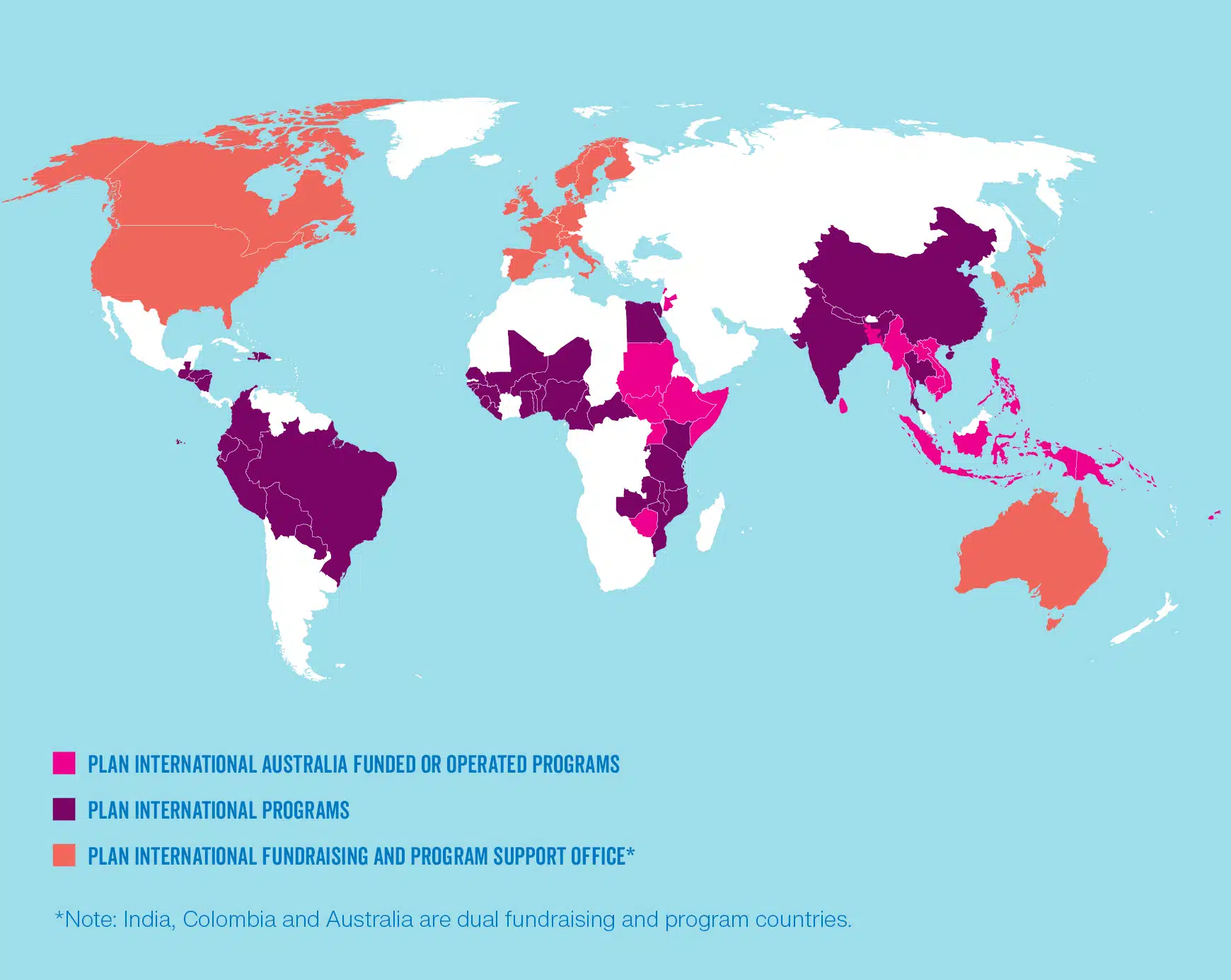
How we create impact
Our theory of change is to work together with partners to create lasting impact on:
- norms, attitudes and behaviours
- social and economic resources and safety nets
- policy frameworks and budgets.
We do this at individual, family, community, national and global levels to support empowerment of children, young people and communities.
We focus on supporting girls in their communities to:
- learn: have access to education and the skills for work and life
- decide: have control over their lives and bodies
- lead: take action on issues that matter to them
- thrive: grow up cared for and free from violence and fear
- survive: increase the impact of our humanitarian work for children, particularly girls by adapting our focus where the need is greatest.
Our programs have clear outcomes and measurements, so we can provide evidence of their impacts.
Learn more in our annual impact report.
Read our research and evaluation reports.
Photo: Awa, 30, suffered ill health after she underwent FGM as a child. © Plan International
Revolutionising education through Cambodia’s School Learning Gardens
Despite Cambodia improving enrolment rates of children in primary school, Cambodian children, especially those in rural areas, continue to fall behind in school due to a lack of quality teaching and learning environments.
The School Learning Garden (SLG) project transforms the school garden and kitchen spaces into an extension of the classroom and supports teachers to use experiential and hands-on learning techniques.
It’s a ground-breaking approach to education in Cambodia, inspired by the evidence-based model of the Stephanie Alexander Kitchen Garden Program in Australia, which is currently implemented in over 800 schools.
During the 2024 financial year, the project:
- was officially adopted by the Cambodian Education Ministry as part of the national curriculum for grades four to six
- 97% of parents noted that their children enjoy school more because of the program, with many saying it has positively changed their children’s attitudes towards healthy eating
- 73% of parents observed that their children are collaborating better, regardless of gender, with boys taking on roles such as cooking and cleaning at home.
The School Learning Garden project is delivered in partnership with the Australian Government through the Australian NGO Cooperation Program (ANCP), and with support from the Stephanie Alexander Kitchen Garden Program and funds generously donated to Plan International Australia from the Australian public.
Photo: Girls tend to vegetables in the school learning garden. © Plan International

